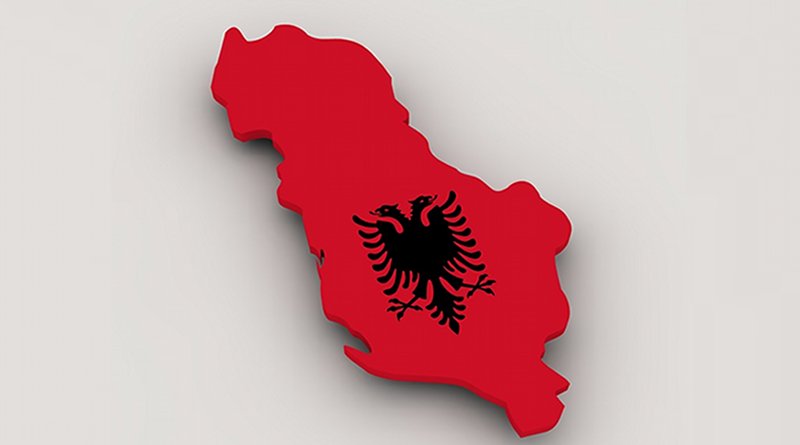Transparency Questions Over Albanian Effort To Rid Courts Of Corruption – Analysis
Albania is vetting its judges and prosecutors to weed out those suspected of graft. But when an Italian expert hired to provide oversight objected to a prosecutor’s dismissal, his opinion was suppressed.
By Vladimir Karaj
In late April 2019, judges of the Albanian Constitutional Court’s Special Appeal Chamber convened at short notice to consider a request by an Italian judge – hired to help oversee a vetting program to weed out corrupt judges and prosecutors – to make public his opposition to a decision by the Chamber to confirm the dismissal of a senior prosecutor called Antoneta Sevdari.
The vetting program is the cornerstone of a major justice reform implemented by the Socialist government of Prime Minister Edi Rama under pressure from the European Union and United States to tackle endemic graft in Albania, a NATO member and EU candidate country.
It is conducted by the Independent Qualification Commission, IQC, supported by an international team of career judges and prosecutors on the International Monitoring Operation, IMO, and who have the right to file dissenting opinions.
Appeals against IQC decisions go to the specially-created Special Appeal Chamber, which on February 28, 2019 upheld an appeal by Albania’s Public Commission against an IQC decision to keep Sevdari in office. The Chamber argued she had failed to provide full disclosure of her income – a red flag for corruption.
For the first time, however, the IMO observer assigned to the case – Italian judge Ferdinando Buatier de Mongeot – objected, and asked that his dissenting opinion be published alongside the Chamber’s decision.
Huddled in conference, the Chamber’s judges voted 6-1 against the request, according to documents obtained by BIRN via a freedom of information request.
The decision set a precedent for the handling of all future dissenting opinions from the IOM, and raises questions about the transparency of a vetting process intended to encourage public trust in the Albanian judicial system.
Buatier de Mongeot’s opinion was eventually published in July 2019 on the webpage of the EU Delegation in Tirana but for Albania it remains officially under lock and key. Sevdari said she had been rebuffed when she asked the Special Appeals Chamber to see the document.
“I learned of [its existence] after it was published in the media,” the ousted prosecutor told BIRN.
Insufficient grounds for dismissal
Sevdari’s dismissal was backed by four of five judges of the Special Appeals Chamber. The one dissenter, Ina Rama, argued that the prosecutor had indeed provided evidence of the source of her income and that of her husband but not that taxes had been paid on it. This, Rama argued, was not sufficient grounds for her dismissal.
Buatier de Mongeot similarly argued that the question marks over Sevdari primarily concerned the payment of taxes abroad, that the judicial panel had wrongly interpreted the law and that there was insufficient evidence of wrongdoing to justify her dismissal.
He asked that his opinion by published alongside the Chamber’s verdict, in Albanian and English, according to a written request on April 25 from one of the Chamber’s judges for the Chamber to consider the question, seen by BIRN.
The call for the meeting specified that neither the law nor the Chamber’s own internal rules regulated how such requests should be handled.
Article 55 of the law, 84/2016, specifies that IMO dissenting or parallel opinions on decisions of the IQC should be attached to those decisions. But it makes no such specification in the case of the Special Appeals Chamber, and nor does the Albanian Constitution in its annex on the IMO.
Full disclosure ‘not in public’s best interest’
The Chamber ruled that IMO opinions cannot be published alongside the Chamber’s final decisions nor be part of the case docket, according to documents provided to BIRN by the Chamber.
The Chamber, however, refused a request by BIRN for the minutes of the meeting, agreeing only later to disclose the initial request for the meeting and the result of the vote.
In response to a freedom of information request, the Chamber initially cited obstacles to the publication of the minutes under laws applying to privacy, trade secrets and patents, as well as the risk of “clear and serious harm to the administration of the vetting process.”
When BIRN complained to Albania’s Commissioner for the Right to Information, the Chamber’s chairwoman, Natasha Mulaj, dismissed the previous citation of the law on freedom of information but affirmed the threat to the vetting process posed by publication of the minutes.
Publication, she wrote, “is not in the best interests of the public and could even result in misinformation.” The decision taken and the initial request for the Chamber to meet were “sufficiently informative,” Mulaj argued, and even a summary of the minutes would not in the public’s interest.
The IMO did not respond directly to BIRN questions regarding whether the Chamber had tried to censor its team and how the case might affect its future work, but it did say that dissenting opinions would continue to be published on the website of the EU delegation.
“This practice will be maintained to give due public visibility to the stances of IMO International Observers,” it said.

